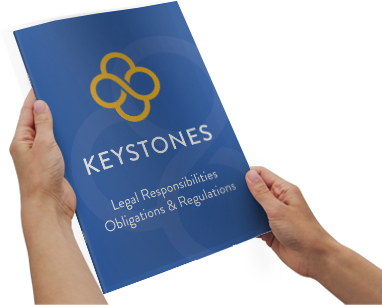How to Handle a Tenant in Arrears
A non-paying tenant is every landlord’s worst nightmare. But take the right steps, and you can find a solution
The ongoing buoyancy of the housing market, particularly when compared to other forms of investments, means that more people than ever have entered the buy to let market and there are now over two million private landlords in the UK.
Buying a rental property and letting it out makes all sorts of financial sense, but anyone who goes into it with their eyes wide open will know that it can carry complications. Maintenance and emergency repairs immediately spring to mind, but according to one experienced Romford letting agent, the single biggest worry among landlords is problem tenants who move in and then stop paying.
If you find yourself in this situation, rest assured that you are not the first and you won’t be the last.
Keep it amicable
The first course of action when there is any kind of problem is to talk it out. Be calm, be fair and remember there are two aspects to communication. As one wise judge is fond of saying, we have two ears and one mouth for a reason.
Find out why they are not paying – remember, there is a big difference between “can’t” and “won’t” and try to focus the conversation on solutions. Even if you are met with stony silence or unwillingness, remain professional and polite. By doing so, you remain in the best possible position should you have to take things further.
Consider a rent reduction
If the conversation goes well and the tenant wants to pay, has an otherwise good history and is someone with whom you have a good relationship, you could consider a temporary reduction in the rent. It shows willingness and cooperation on your part, and if they are serious, it saves you the time and expense of finding a new tenant.
Explore housing benefit options
Perhaps your tenant cannot pay due to losing a job or suddenly becoming single. In this case, there could be government assistance available. Put them in touch with the Citizen’s Advice Bureau to see if they are entitled to any benefits.
Break the contract
If the above options are not viable, it might be best to simply let them leave. Cut your losses, say goodbye and move forward with the search for a new tenant.
Issue a Section 8 or Section 21 Notice
In the majority of cases, amicable methods are effective. But if your tenant refuses to talk and refuses to leave, you will have to commence legal action to regain possession of your property. If you are within the fixed term of the tenancy agreement, this means issuing your tenant with a Section 8 Notice. You will have to give detailed grounds explaining why you are seeking possession. Note that in assessing the case, the court is likely to take your behaviour and actions up to this point into account – this is why it is so important to be reasonable and professional throughout.
When the fixed tenancy period is over, you do not need grounds for reclaiming your property. All you have to do is issue a Section 21 Notice. This is far simpler, and some landlords choose to simply wait out the fixed tenancy period and issue a Section 21 instead of going down the road of a Section 8.
More from the Keystones learning hub
Keep updated with what's going on in your local area. Our latest news provides up-to-date information on everything regarding the local property market, for everyone including homebuyers, sellers, tenants, and landlords.
The Landlord Ombudsman & Renters Rights Bill – We Explain it All

3 June, 2025
It’s a great time to keep your UK Residential Buy to Let

20 May, 2025

Come and see us face to face
Keystones are Open 6 days a week. Pop in, have a Tea or Coffee as we always have people on hand to help you.
Keystones Property
-
Keystones Property Collier Row
13 Clockhouse Lane, Collier Row, Romford, Essex, RM5 3PH, United Kingdom -
Email: [email protected]
-
Telephone: 01708 909 100





